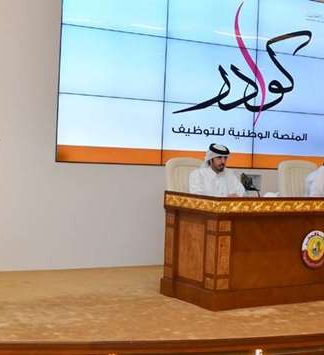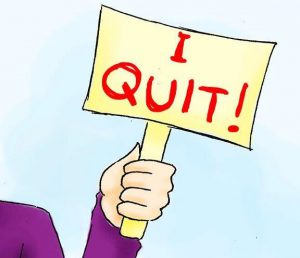OPINION
18 HOURS AGO
The genocide exposes friends and foes at the University of Michigan
As the death toll of Palestinians in Gaza rises, the attitudes are changing among the university students. But some still have difficulty condemning the Israeli aggression.
BILAL IRFAN
A coalition of University of Michigan students camp in the Diag to pressure the university to divest its endowment from companies that support Israel. / Photo: Reuters
REUTERS
A coalition of University of Michigan students camp in the Diag to pressure the university to divest its endowment from companies that support Israel. / Photo: Reuters
The last few months have been a turbulent time for campuses across the United States as students, staff, faculty, and administrators grapple with the consequences of our nation-wide and institutional connections with war-profiteering groups.
The Israeli assault on Gaza, and the ensuing humanitarian catastrophe, has shaped the 2023-2024 academic year at the University of Michigan (U-M) as well.
Students Allied for Freedom and Equality (SAFE) and the campus Students for Justice Palestine (SJP) chapter organised and led the creation of the multi-faith, multi-ethnic, Tahrir Coalition, spanning 100+ student organisations across the ideological spectrum united in their pursuit for justice for Palestinians and divestment of university funds linked to corporations involved in human rights abuses.
Campus marches, protests, walk-outs, sit-ins, emails, highly contested student government ballot initiatives and elections, and a series of statements have characterised the day-to-day landscape for the past several months by various groups and actors at U-M.
Yet there has been a profound evolution in the way the genocidal onslaught in Gaza, and the wider implications of the decades-long occupation and apartheid instituted by the settler-colonial regime, is being understood.
The first candle-light vigils organised by SAFE in October were conducted in the dark of the night with a backdrop of the downpour of rain and a solemn mood, as the names of the children slaughtered in Gaza were recited.
Masks were donned across nearly every face, as people sought to conceal their identities for fear that any display of sympathy with the loss of innocent life would make one a target of slandering, smearing, and doxing campaigns launched and funded by apartheid and genocide apologists.
November saw a virulent hate-campaign launched against two student leaders, falsely accusing them of misconduct in campus-wide ballot initiatives that were subsequently canceled by the U-M administration under immense pressure – a broad overstep on traditional autonomy of student government initiatives.
Numerous speakers have been invited to campus to rationalise and clarify Israel’s genocidal aims through a deliberate strategy of misinformation and obscurification of the reality of racial-supremacy implemented in the apartheid regime.
REUTERS
Dozens of students were arrested for their sit-ins at an administrative building in which they requested a meeting with the U-M leadership.
Some found facilitation for their events or initiatives through the backing of university administrators, who were consistently thanked for their support and unwavering commitment in groups, forums, and public settings.
A constant barrage of emails by university administrators were sent to appease the growing demands of pro-apartheid entities in their attempts to silence and intimidate those daring to speak on behalf of the victims of genocide.
Scarce acknowledgement of Gaza or Palestinians was made, or the impact this crisis has had on Palestinian, Arab, and Muslim community members, with mentions being largely reserved to random video-messages with little traction.
In fact, dozens of students were arrested for their sit-ins at an administrative building in which they requested a meeting with the university leadership.
More statements, more emails, more resolutions, more pro-genocide campus speakers, explicit and overt anti-Muslim and anti-Palestinian racism, harassment, assault by university affiliates, and a litany of protests marked the next few months.
This all came to a head in the end of March, where an Honors Convocation was disrupted by students calling for divestment.
Students were issued tresspasses, others were unduly targeted, and threats of disciplinary action were issued as pressure mounted from the external and internal groups aimed at curbing anti-genocide, anti-apartheid speech.
Despite this, the tide was turning amidst a tsunami of support yet to come. Palestinian photojournalist Motaz Azaiza came to U-M, and shared snippets of his experiences surviving and escaping the horrors of the hell-on-earth that Gaza has become.
April saw protests lead to the scaling back of events organised by genocide apologists. At the same time, hundreds of alumni, faculty, staff, and parents opposed attempts to enact a Disruptive Action Policy, which would have curbed and limited the students’ speech, expression, and assembly.
It also witnessed the beginning of an encampment in the Diag, a large open space in central campus, as part of a nation-wide spur in the wake of the Columbia University encampment, which garnered international recognition.
Counterprotestors have become fewer in size, number, and scope as the days go by, and the university has made no concentrated effort to dispose of it despite the repeated calls and pressure being exerted by pro-genocide entities, recent use of police force against protestors on the eve of commencement, and the subsequent commencement ceremony disruptions.
What really struck a chord, was hearing some students mention their hesitancy to give an interview or publicly show support for their pro-apartheid and pro-genocide stances as the sociopolitical landscaped has shifted and may turn such individuals and their respective views into pariahs in the future.
Perhaps it is befitting that the uncommitted campaign draws its roots in Michigan, a battleground to save the lives of innocent children in Gaza. While it may be a sign of humanity prevailing, the world must come to terms with how this programme of indoctrination, hatred, and racial supremacy has endured for decades.
REUTERS
Protestors on the Michigan campus write on paper a poem by the Palestinian poet Refaat Alareer, who died in an Israeli bombardment of Gaza last December.
In the past few months, I have come to know and hear students from a wide variety of backgrounds, who have a diverse range of views and approaches to the situation in Palestine.
What has profoundly stood out to me is that even those who may befriend Muslims, Arabs, or Palestinians, and sincerely appreciate aspects of the related culture and care for their friends, ignore the dehumanisation taking place in the occupied Palestinian territories.
There is an inability to grasp the sheer gravity and longevity of the human rights violations faced by Palestinians, or the sordid levels of racism they are subjected to.
There is some respite in knowing that not every individual is driven sheerly by genocidal bloodlust and racial supremacy, many are victims of their own ignorance, blinded, indoctrinated, and brainwashed by the contours of what they have grown around and been fed. Their own humanity has been robbed of them and their ability to empathise with innocent lives lost.
Some of the pro-Palestinian students have come to the difficult realisation that those they took for friends would be willing to justify their killing if they were in Palestine, all the while aiding, abetting, defending, and denying the crimes being committed.
Their expressions of sympathy to the loss of innocent lives, endangerment of friends or their loved ones, are a charade, a factitious absurdity designed to quell their own moral misgivings that they would not dismiss, overlook, or support such crimes in earnest if committed in Palestine against Palestinians.
As the world changes and relationships evolve, so too will the future of humanity, which is being rekindled by student voices. And so, the steps in the Diag overlooking the encampment currently has a chalked-written display of a rough translation of Quran 17:81: “Indeed, falsehood is bound to vanish”.
SOURCE: TRT WORLD
Bilal Irfan
Bilal Irfan is a medicine and bioethics researcher at the Harvard Medical School. He’s a former student body president at the University of Michigan.






























